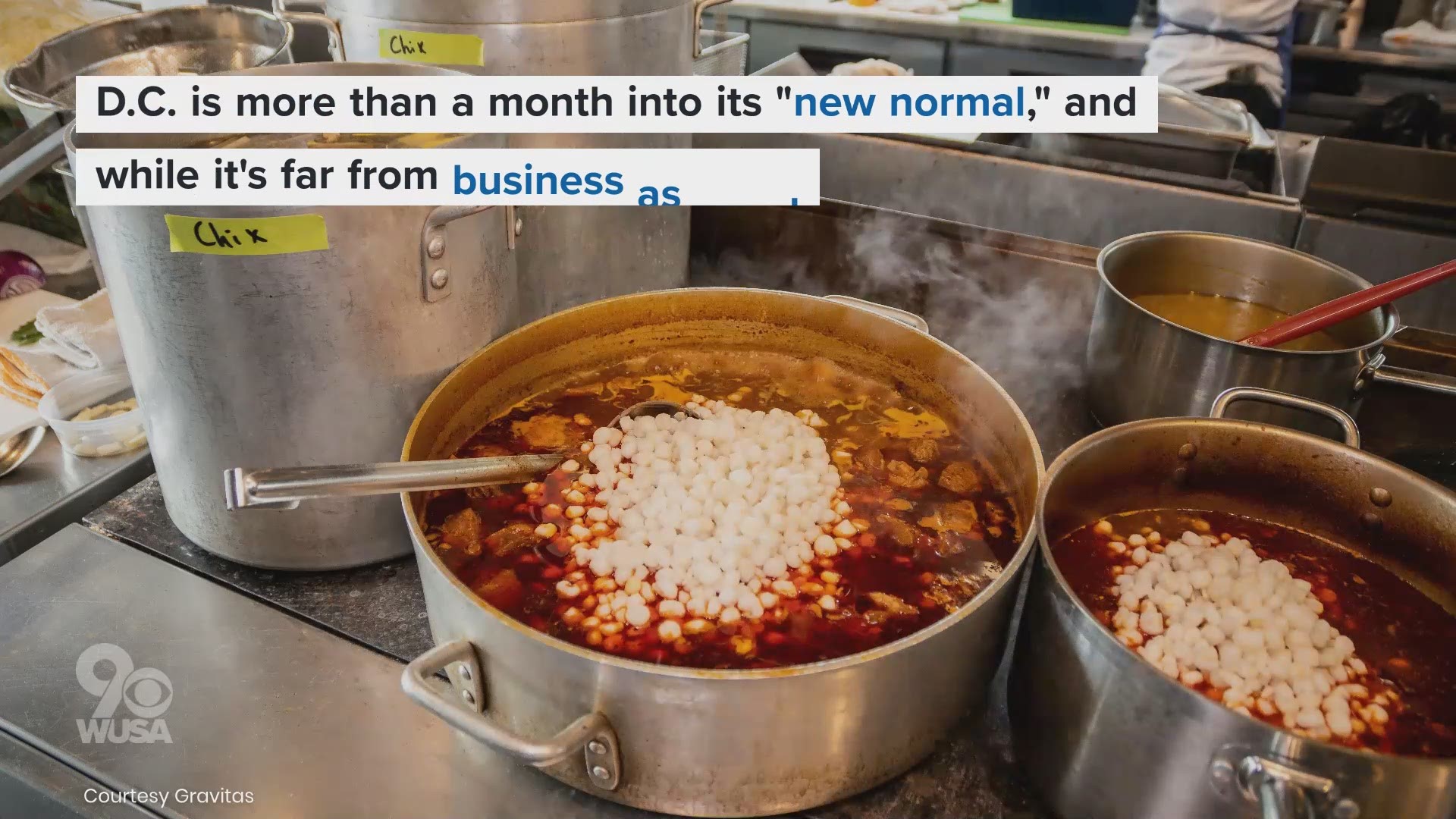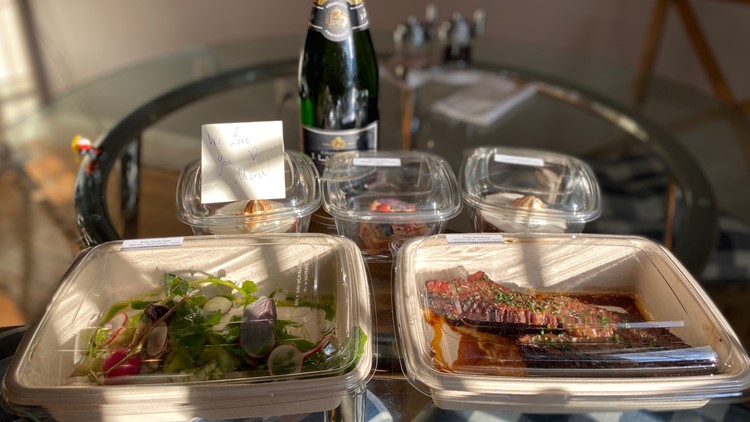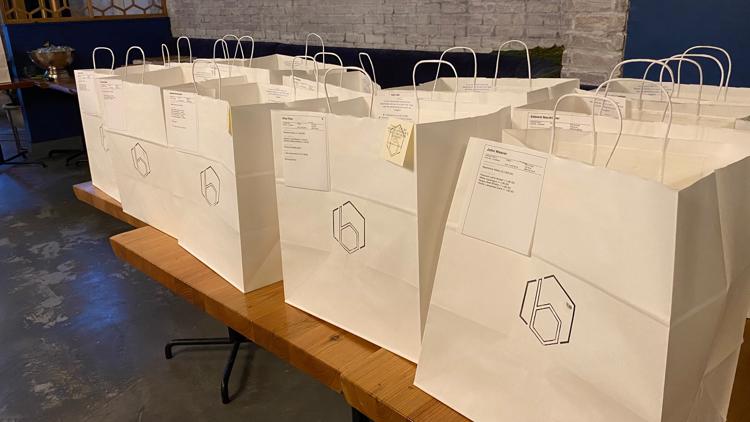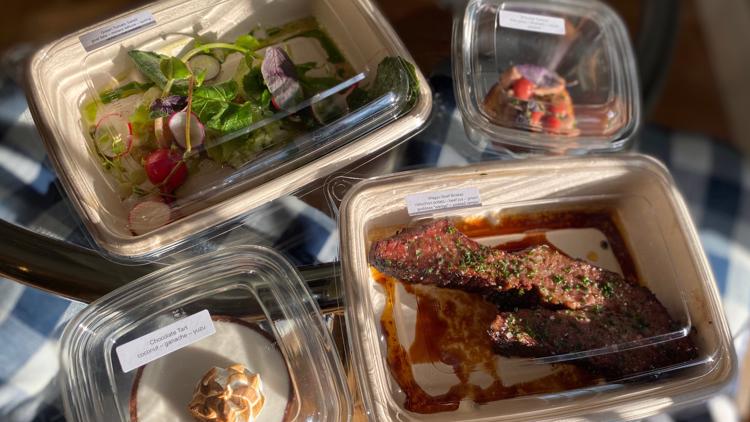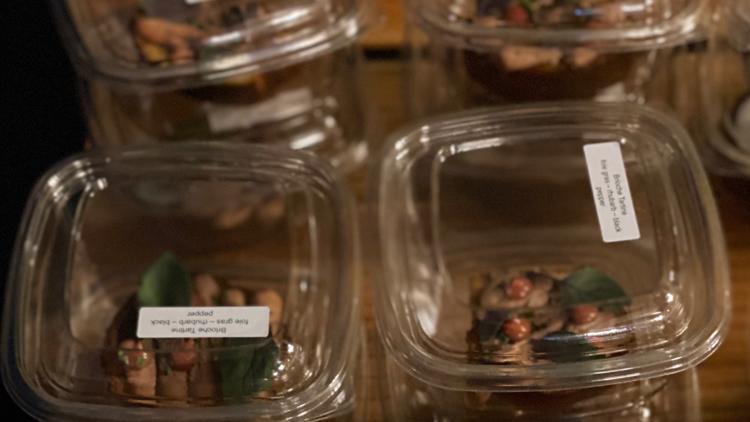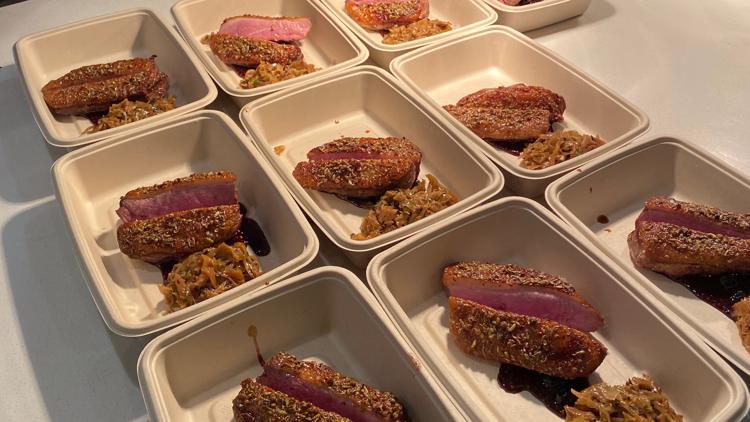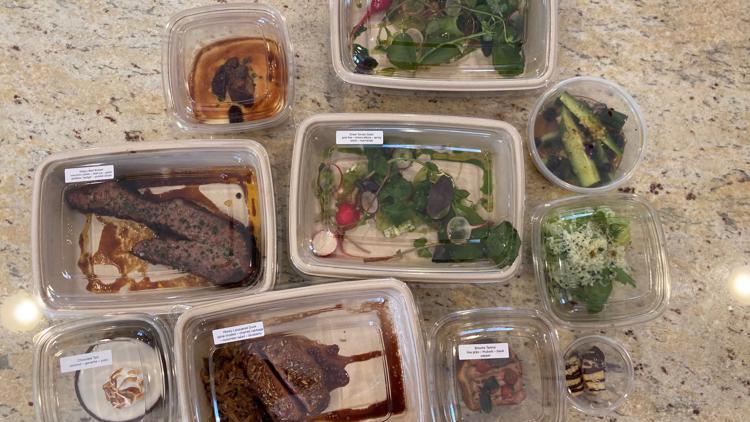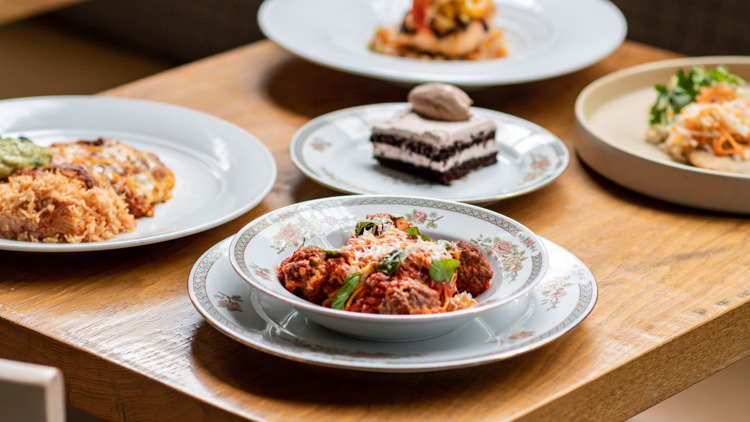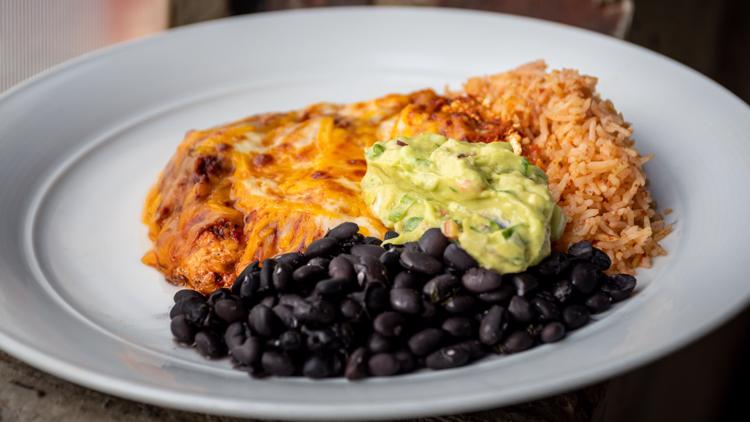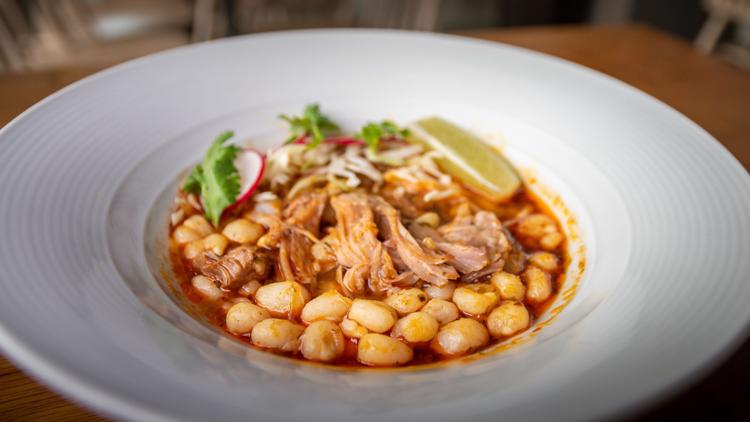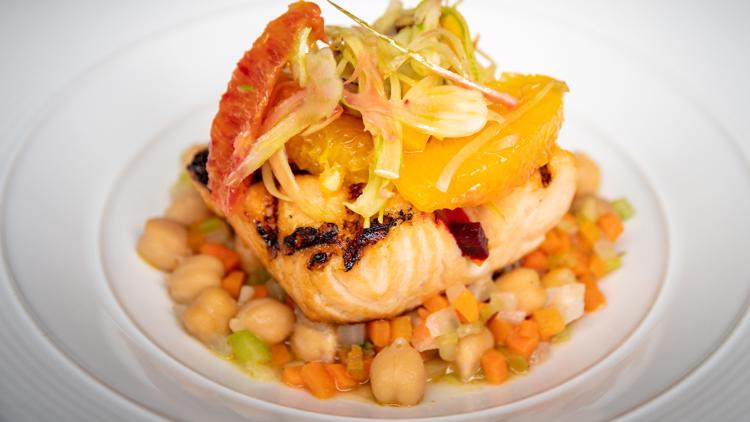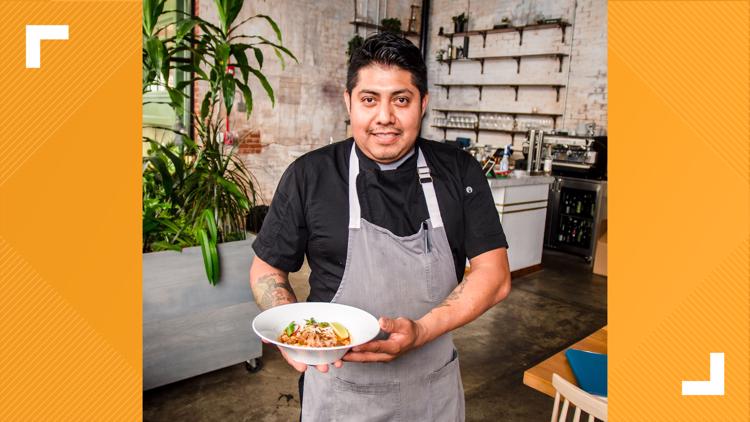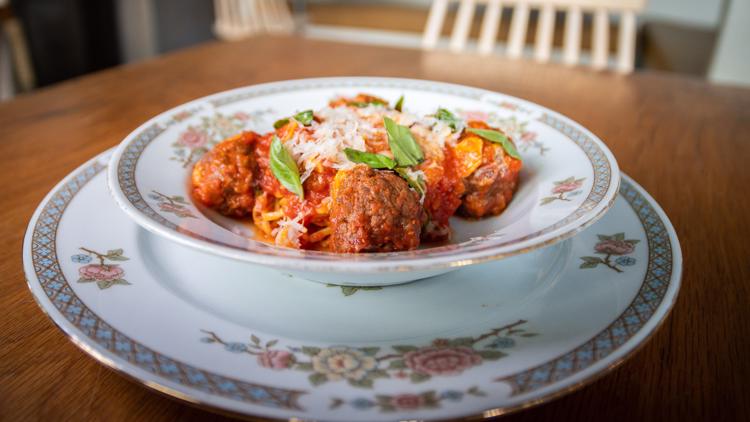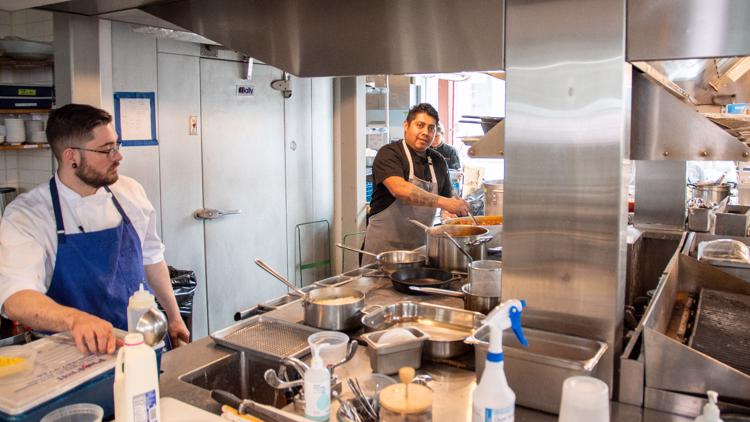WASHINGTON — D.C. is more than a month into its "new normal," and while it's far from business as usual, restaurants that have chosen to stay open during the pandemic are attempting to settle into their new routine. Menus are being rotated, chefs are slowly bringing staff back on payroll and some are even moving forward with previous expansion plans.
For the city's Michelin-starred establishments, one of the biggest challenges is learning how to deliver their signature service and connecting with diners, while only interacting from a distance. Though Michelin is notoriously secretive on their evaluation process, they define a one-star restaurant as one that is "worth a stop," while two stars is "worth a detour" and three stars -- which only The Inn at Little Washington has achieved -- is "worth a special trip." Attention to detail is paramount if a chef wants to be seeing stars.
In the age of coronavirus, when detours and special trips are highly discouraged, how does a chef lure customers out of their quarantine to purchase a multi-course tasting menu to eat at home?
"We got where we are with generosity and not being stingy," Bresca chef Ryan Ratino said. "If you came into the restaurant to celebrate a special occasion -- a birthday, an anniversary, a night out with the girls -- we always made it special with champagne or extra goodies."
Bresca is keeping that continuity by including personalized notes in deliveries acknowledging what you're celebrating or sending tea lights to create a restaurant atmosphere at home. Custom labels are affixed to each carryout container to easily identify dishes, reheating instructions are sent with every meal and bags are stamped with the restaurant's signature honeycomb hexagon.
Bresca's takeout menu
For Ratino, his primary goal is to stay as true to the Bresca mission as possible during the shutdown, and inject personality into every dish. But to do it, Ratino originally shuttered Bresca, and only reopened for service the weekend of April 10.
"We took time to understand our pivot, because we've never done anything like this before," he said.
Now, he's serving a four-course menu that rotates weekly for $45, and he's calling it the #BeeHome menu, a nod to the restaurant's honeycomb theme.
Gravitas chef Matt Baker took the opposite approach. To him, it didn't make sense to try and replicate what he normally does while navigating uncharted territory.
"We are a fine-dining, tasting-menu only restaurant," Baker said of Gravitas. "I've never done delivery in my life. What we do on a normal basis with cuisine just doesn't fit."
Baker noticed that comfort foods seemed to be a trend with staying power during these uncertain times. He leaned into the trend and offered his line cooks the opportunity to showcase dishes that are near and dear to their heart to tell their stories. Chef Gustavo Torres has worked with Baker for years, and the two have always shared a passion for a traditional Mexican dish they both grew up with called posole.
"He'd often make it at home and bring it in for me," Baker said. "So when this happened it was a no-brainer to put his family's recipe on the menu. It's absolutely delicious."
Italian ribolita soup, Salvadoran pupusas, spaghetti and meatballs and beef bourguignon have all made appearances on the Gravitas menu, as well.
Gravitas takeout menu
Both Ratino and Baker noted the importance of setting ego aside right now, and simply working to get the job done. Baker has gone as far as making deliveries himself.
"Yes, we are a Michelin restaurant, but Michelin-quality delivery is tough, and it's just not really what we are going for," Baker said. "We want to deliver good, quality, hearty food that people are happy to eat."
Ratino, whose nickname is "Michelin star" because of his lifelong love for the little red book, didn't think operating a fast-casual restaurant was in his blood. But the pandemic has forced him to reevaluate what he's capable of, and what a Michelin mindset looks like.
"At the end of the day, it's all about the process," he said. "If we are sourcing well, giving the customer the best ingredients and treating them with the same love, then what's wrong with putting our food in fifty-cent carryout boxes?"
Ratino believes he may even find a way to work carryout into his regular operations post pandemic.
"As much as I love Michelin stars, and dine-in restaurants, I'm about the guests 100% of the time," Ratino said. "The restaurant industry is going to be almost unrecognizable when we get back ... and if the new normal sees 30% of customers still wanting to dine at home, I want to be there for them."

